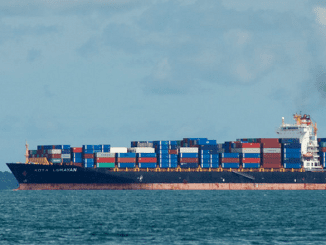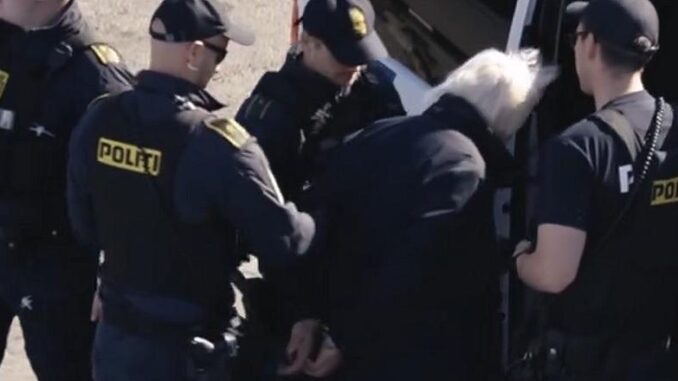
NUUK, Greenland, July 23, 2024 (ENS) – On the morning of Sunday, July 21, Captain Paul Watson, co-founder of marine conservation organization Greenpeace, founder of the Sea Shepherd Conservation Society and the Captain Paul Watson Foundation, was arrested by Greenland police upon his arrival in the capital, Nuuk.
Captain Watson, on board his 72-meter flagship the M/Y John Paul DeJoria, stopped in Greenland with 25 volunteer crew to refuel. He was en route to the Northwest Passage as a part of the CPWF’s Operation Kangei Maru, a mission to intercept Japan’s newly-built factory whaling ship Kangei Maru in the North Pacific ocean.
In Nuuk, Greenland police and SWAT team members boarded the M/Y John Paul DeJoria as soon as it made port.
Handcuffed, Captain Watson was led off of the ship and taken to the local police station.
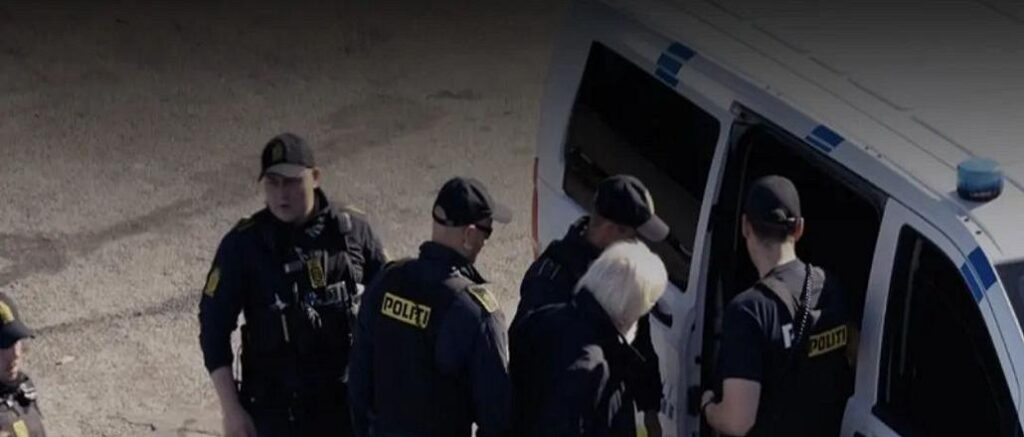
“We were here, and arrested Paul due to an international arrest order from Japan,” said the leader of the police boarding party at the site of the arrest. The crew were given no further information.
The Greenland police said in a written statement that Watson was taken before a judge at Sermersooq District Court with a police request for his detention until a decision is made on whether he should be extradited to Japan.
Watson will be detained in Nuuk until August 15 to allow the Danish Ministry of Justice time to decide whether to extradite him to Japan on an international arrest warrant. The maximum sentence he faces is life in a Japanese prison.
It is unknown whether Denmark will allow Watson to be extradited to Japan. The Ministry of Justice decides whether there are grounds for extraditing any individual for prosecution in other countries.
French President Emmanuel Macron’s office said on Tuesday that he was asking Danish authorities not to extradite Watson to Japan, the France24 news outlet reported. Captain Watson now lives in France. He faces charges of interfering with a Japanese whaling ship in the Antarctic Ocean in 2010.
The arrest is believed to be related to a Red Notice issued for Captain Watson’s 2010 anti-whaling interventions in the Antarctic region against Japan’s Antarctic research whaling program, JARPA, and for fighting shark finning in Costa Rica. The Interpol Red Notice was issued on September 14, 2012, at the request of Japan.
However, JARPA was declared illegal by the International Court of Justice in 2014.
Red Notices are issued by the international police force, Interpol, based in Lyon, France. A search today of Red Notices on the Interpol website brought up no results for Paul Watson.
Although the Greenland police said in a statement, “…the American-Canadian citizen Paul Watson, had to be arrested because there is an international arrest warrant for him,” Interpol specifically explains in a posting on its site that a Red Notice is not an international arrest warrant.
“A Red Notice is a request to law enforcement worldwide to locate and provisionally arrest a person pending extradition, surrender, or similar legal action. A Red Notice is not an international arrest warrant,” Interpol clearly states.
“The individuals are wanted by the requesting member country, or international tribunal. Member countries apply their own laws in deciding whether to arrest a person,” Interpol explains. “The majority of Red Notices are restricted to law enforcement use only.”
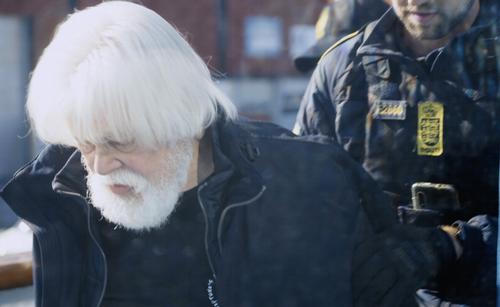
Locky MacLean, Ship Operation’s Director for CPWF, said, “We’re completely shocked, as the Red Notice had disappeared a few months ago. We were surprised because it could mean that it had been erased or made confidential. We understand now that Japan made it confidential to lure Paul into a false sense of security. We implore the Danish government to release Captain Watson and not entertain this politically-motivated request.”
The Foundation believes, “Japan plans to resume high-seas whaling in the Southern Ocean and North Pacific as early as 2025, and the reactivation of the Red Notice against Captain Watson is politically motivated and coincides with the launch of a newly-built factory whale processing vessel.”
As to why the Red Notice for Captain Watson does not appear on its site, Interpol explains that in general, “Extracts of Red Notices are published at the request of the member country concerned and where the public’s help may be needed to locate an individual or if the individual may pose a threat to public safety.”
The police needed no one’s help to locate Captain Watson, who made it very clear where he would be.
On May 31, the Captain Paul Watson Foundation was not after Japanese whalers, he and his crew of anti-whaling activists were taking aim at Icelandic whale hunter Kristjan Loftsson.
In a communication to the Government of Iceland, Captain Watson on behalf of the Foundation “politely” requested that the Icelandic government not issue a permit to Kristján Loftsson to kill whales this summer.
“If a permit is issued the Captain Watson Foundation’s ship the John Paul DeJoria will intercept and block any whaling ship that intends to kill an endangered Fin whale,” wrote Watson.
“This will be a potentially controversial confrontation that will not benefit Iceland’s image because it will be highlighting Iceland’s continued contempt for the International Whaling Commission and international public opinion.”
“Our intervention may trigger a response from the Icelandic Coast Guard to defend Loftsson’s ships thereby forcing a confrontation between the Icelandic Coast Guard and the Captain Paul Watson Foundation’s ship, John Paul DeJoria,” Watson wrote.
“If any crew from the Captain Paul Watson Foundation are arrested this will provide for a trial in an Icelandic Court that will also be a forum for a trial in the International Court of Public Opinion that will serve the cause of shutting down illegal Icelandic whaling operations, illegal as defined by the Global Ban on Commercial Whaling imposed by the International Whaling Commission in 1986,” he wrote.
“It’s time for the criminal whaling operations by Kristján Loftsson to be permanently ended. It’s time for Iceland to become a whale conservation nation instead of a whale-killing nation.”
On July 13, Watson announced the success of this tactic. “After many years of opposing the killing of whales in Iceland, it looks like we finally have a victory!,” he wrote in an email.
“It appears that no whales will be killed this summer despite the Icelandic government giving the green light to slaughter 99 endangered Fin whales. Whale killing boss Kristjan Loftsson says the permits came too late for him to launch his two ships and he understood that we would aggressively block his killing operations,” Watson wrote.
Instead, with a ready and eager crew, Watson pivoted to pursue his real quarry – Japan’s new factory whaling ship, the Kangei Maru.
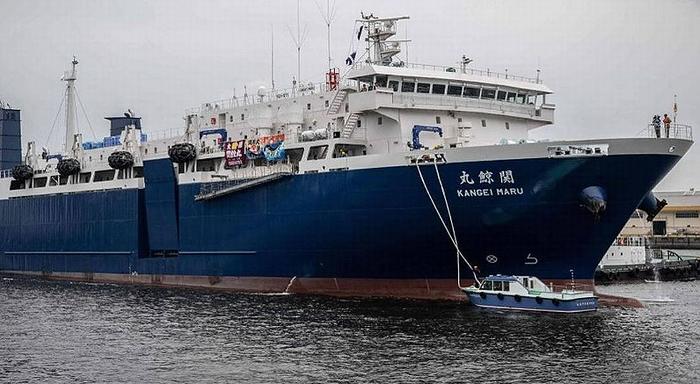
“The plan is to go after the world’s largest and most dangerous whaling ship, the Kangei Maru, and lock its operations,” Watson said in a July 11 post on his website. “We have to get to the Pacific and the shortest route is through the Northwest Passage,” Captain Watson said from the wheelhouse of CPWF’s vessel in the Liffey River, Dublin.
From Dublin, he headed the M/Y John Paul DeJoria toward the Northwest Passage.
The mission, termed Operation Kangei Maru, marks 50 years of Paul Watson’s anti-whaling marine activism that began in the earliest days of Greenpeace, when he opposed Russian whalers off North America’s northwest coast.
“This is the most high stakes mission in all my years of opposing whaling in the world’s oceans,” Watson said.
CPWF or Neptune’s Navy, as its marine operations arm is known, was set to be the first anti-whaling ship to attempt the notoriously difficult passage, which stretches from Baffin Bay, west of Greenland, to the Beaufort Sea north of Alaska. The passage has only been completed in its entirety by 262 vessels.
Watson’s mission is now on hold, and the Foundation is seeking donations in an effort to free him from Danish custody.
Watson, 73, a Canadian-American citizen, is the founder and former head of the Sea Shepherd Conservation Society. Famous for nonviolent direct action, especially high-seas battles with whalers, Captain Watson and the Sea Shepherd were featured in the reality television series “Whale Wars.”
Speaker, author, master mariner, and lifelong environmentalist, Watson received the Genesis Award for Lifetime Achievement in 1998, was named as one of the Top 20 Environmental Heroes of the 20th Century by Time Magazine in 2000 and was inducted into the U.S. Animal Rights Hall of Fame in Washington DC in 2002.
He was also awarded the Amazon Peace Prize by the president of Ecuador in 2007. In 2012, Captain Watson became only the second person, after Captain Jacques Cousteau, to be awarded the Jules Verne Award, dedicated to environmentalists and adventurers. In 2022, Captain Paul Watson continues his fight for marine wildlife conservation with the new Captain Paul Watson Foundation.
While in 2022 Watson founded the Captain Paul Watson Foundation alongside tech entrepreneur Omar Todd, he is not in any leadership role nor is he employed by the Foundation. He’s the inspirational advisor to the Board of Directors and is purely a volunteer.
The Captain Paul Watson Foundation’s anti-whaling vessel the M/Y John Paul de Joria is continuing its mission; Lockey MacLean says she is just now entering the Arctic Circle.
Featured image: Captain Paul Watson is arrested on a Red Notice issued by Japan. July 21, 2024, Nuuk Greenland (Screengrab from video courtesy Captain Paul Watson Foundation)
© 2024, Environment News Service. All rights reserved. Content may be quoted only with proper attribution and a direct link to the original article. Full reproduction is prohibited.

